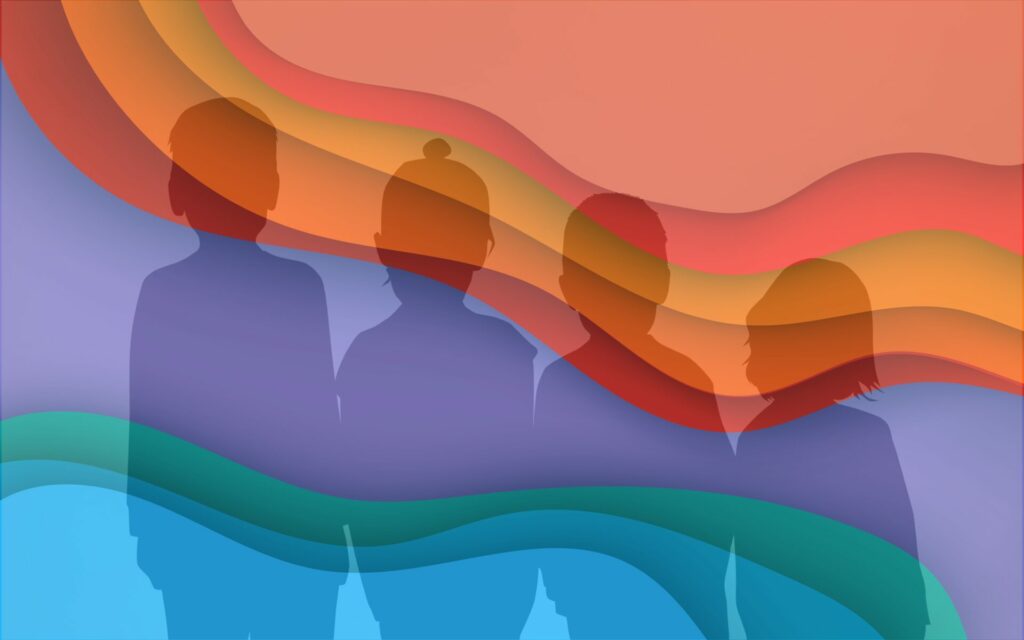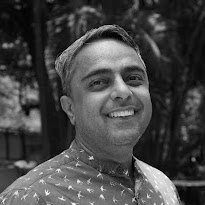This is a journey of a lifetime, as much about self-discovery and transformation of the self as it is about finding transformative solutions to support every child to have a thriving life.
Vishal Talreja, Co-founder of Dream a Dream
In early 1999, I returned from a short stint as an exchange student in Finland, with a vision to change the way we look at every human being in India, inclusive of their background. I was inspired by the dignity associated with every occupation in Finland and was equally surprised to uncover the deep-seated biases and stereotypes I held as an upper-caste Hindu in India. Despite my limited understanding of context and with no experience in the development sector, I co-founded a non-profit organisation called Dream a Dream with 11 co-founders, and my learning journey began.
While volunteering in a home with HIV and cancer-affected children, I observed that though people were generous with their money, they did not spend time with these children. The children told me they did not want to feel invisible. Their expressed need to be treated with dignity made it imperative for me to look beyond the stigma and ask, “What do they need?” The context of our work is built by consistently being around our stakeholders, in their lived reality, authentically listening to them and asking what they need.
As Dream a Dream expanded its work to runaway, orphaned, and abandoned children in care homes, we researched the systemic gap preventing children growing up with adversity from thriving. Field analysis of care homes in Bangalore revealed that while their basic needs are met, the young people in them struggled to become independent and contributing adults in society, thus pushing them back into poverty when they left care homes. Development of a new set of skills and capacities to deal with an uncertain and constantly changing future was missing. Knowing this, at Dream a Dream, we started with the context of the lack of life skills in children born in adversity and supplemented this with our After School Life Skills Programmes (ASLSP) to create learning opportunities through play and art — mediums we believe are intrinsically rich in developing life skills.
The impact of not addressing Adverse Childhood Experiences (ACE) became clear to us in one particular incident that took place during the course of our programme when a young person hit another with a hockey stick. Initially shocked, we became aware of his violent home environment and how it permeated into his reaction to the world outside. We started understanding the field of child development from the lens of ACE. Having one or more adverse experience in life during early years (0-10 years) impacts a child’s ability to achieve developmental milestones causing stunting or failure to thrive. This impedes their ability to fully engage with life and learning. When ignored, these developmental gaps widen. While adding another layer to our context, we deepened our programme design to develop life skills in young people to overcome adversity and reach age-appropriate developmental milestones.
After a decade of running these programmes and seeing their impact, we went back to the young people to re-examine the programmes’ relevance in their lives. When young people highlighted the role of empathetic and caring adults in positively changing the way they look at themselves, their own identity, and at the world around them, it affirmed the relevance of a trustworthy, caring, non-judgmental adult relationship in their life.
Over 22 years, I have realised that building context to complex social problems is like peeling layers of an onion. At Dream a Dream, we have reframed our own understanding of the context multiple times after finding a new layer every time we dig deeper.
Vishal Talreja, Co-founder of Dream a Dream
Designing a whole new pedagogical approach to our work, we took it to teachers, educators, and youth workers, who play a critical role in a child’s life. Our Teacher Development Programme (TDP), developed in partnership with PYE Global using their Creative Empowerment Model (CEM), is designed to focus on behavioural transformation of adults by unlocking their empathy, care, creativity, authentic listening, and validation, while also developing life skills of their students. The 35,000 teachers we have reached in India and Kenya since 2012 shared that this helped them reframe their own identity, develop their agency, clarify their role in a child’s life, and redesign classroom interventions by developing a deeper understanding of the context of their students.
Over 22 years, I have realised that building context to complex social problems is like peeling layers of an onion. At Dream a Dream, we have reframed our own understanding of the context multiple times after finding a new layer every time we dig deeper. Today, our life skills programme graduates have the social-emotional competencies and aspirations to overcome adversity and thrive in an increasingly complex world. The young man who used the hockey stick to express his anger is now in his late twenties, married to his childhood sweetheart and has a beautiful baby. He is a communications expert, videographer, photographer, and facilitator, and is on his way to becoming a lawyer. He is rebuilding his relationship with his violent past with empathy and understanding, something I recognise as thriving. He also has caring relationships with mentors and guides to help him through life’s complex challenges.
Have we finally unlayered the core challenge and found the silver bullet to help young people thrive?
In 2018, when one of our brilliant young girls was selected for a one-year exchange programme to a community college in the USA, her family locked her up and took away her passport, stating that girls in their family don’t step out of their boundaries. We paused to reflect on how systems (cultural and social) dictate a young person’s way to live life. We were building these amazing capacities in young people to be resilient and fight for their rights and choices to achieve big things in life. Yet, society, with its lens of prejudice, inherent bias, socio-cultural norms, and discriminatory traditions, continues to restrain young people from truly thriving.
Today, Dream a Dream, in addition to developing life skills, is working to break these systemic barriers and structural inequities that exist in our society. We are working with decision makers — parents, teachers, educators, school leaders, employers, policymakers — to shift their lenses and revisit their narratives of success in a changing and challenging world. We are reframing the core purpose of education to work for every child inclusively, and we are reimagining the learning ecosystem beyond the four walls of the school.
As we enter some of these adult spaces, we are beginning to understand how deeply entrenched some of these dominant biases and belief systems are. We see limitations on education opportunities for girls, the invisibility of young people identifying as the third gender, the continued caste and class dynamics that perpetuate inequity, amongst many others.
We have to begin with us. I am unpacking my prejudices framed within deeply patriarchal roots, growing up around children who were poorer than me, getting preferential treatment for being a boy, while constantly challenging the narratives I grew up with. At Dream a Dream, we are trying to create a safe space that is authentic, diverse, equitable, and inclusive to model a society where dignity of all is upheld. We are unlayering our own belief systems, stereotypes, and biases as products of this society and an outdated education system, trying to find ways to transform entire societies.
I don’t think we have peeled all the layers of the challenge. However, through self-reflection, we are constantly questioning the relevance of the context we started our work with to seek a deeper and better understanding of the complexity of the challenges we are addressing.
I have developed a nuanced understanding of what dignity means growing up in a country like India and interacting with stakeholders over two decades. It goes beyond access to education, literacy, numeracy, life skills, and agency. Dignity is learning to own our story but not letting it define our present and future choices. Dignity is acceptance of who I am and also seeing the potential of who I can and will be. Dignity is inside-out and also outside-in when we receive acceptance for who we are, just as we are — without any labels. Dignity is not just economic success but a quality of life defined by a thriving individual, thriving families, thriving societies, and a thriving planet.
This is a journey of a lifetime, as much about self-discovery and transformation of the self as it is about finding transformative solutions to support every child to have a thriving life.
Our invitation to each of you is to remind yourselves:
- Don’t ever stop asking the question, “Have we understood the complexity of the challenge we are addressing and found a solution; or are there more layers to peel?”
- In this journey of social transformation, are we looking at our own biases, prejudices, belief systems, and values and re-examining them from the lens of equity, dignity, and inclusion?
- Are we always listening to our stakeholders and engaging them as co-owners and co-creators of the change we envisage and thus reshaping power structures?
In reflecting on these questions, we just might find a reimagination of a new societal structure that works for every human being and helps us thrive.

